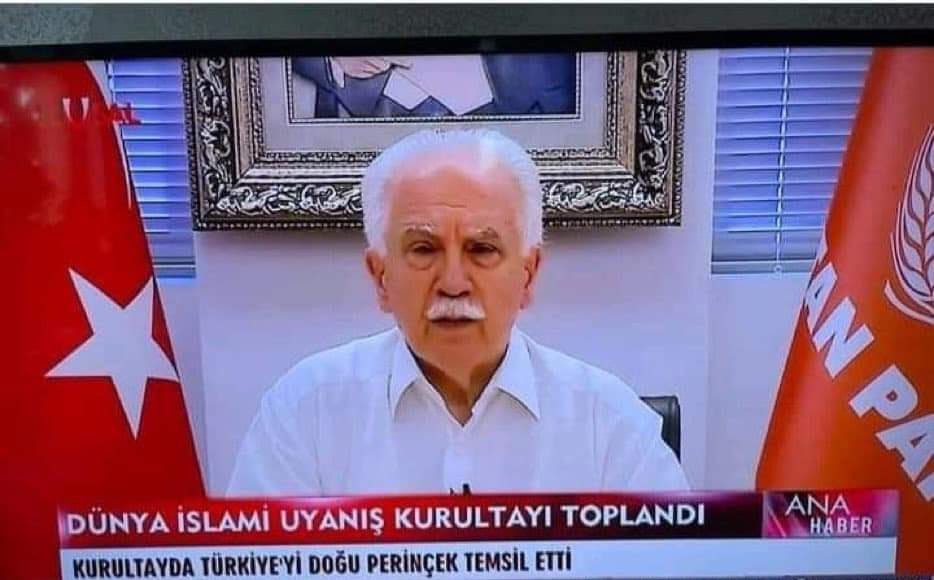Doğu Perinçek, the long-time leader of Turkey’s ultra-secularists and the founder and chairman of the neo-nationalist Homeland Party (VP), unexpectedly attended an online event sponsored by the World Assembly of Islamic Awakening as a speaker for Turkey, local media reported on Thursday.
Also an ally of President Recep Tayyip Erdoğan, the leader of Turkey’s Islamist Justice and Development Party (AKP) government, Perinçek on Monday spoke at the online conference hosted by the Iranian-based Islamic assembly titled “Afghanistan, Peace and Sustainable Security.”
The conference, which began with a speech by Iran supreme leader’s Senior Adviser for International Affairs Ali Akbar Velayati, the secretary-general of the assembly, saw the attendance of representatives from Pakistan, China, Russia, Uzbekistan, Kyrgyzstan, Tajikistan, Turkmenistan and Iran in addition to Turkey, according to Turkish media reports.
“Afghanistan is in the heart of the world. And we wholeheartedly watch and salute the struggle of the people of Afghanistan. The Afghan people won a great victory against American imperialism and gave messages of heroism to the world,” Perinçek said in his speech.
US troops and allied forces are scheduled to be withdrawn from Afghanistan by August 31, 2021, concluding what will have been America’s longest war.
“As the Vatan Party, we are against NATO [bases] in Turkey. We’ve been fighting to completely clear NATO bases from Turkey for 60 years. … The Turkish nation is at the forefront of the peoples of the world who are against American imperialism. … Therefore, as the Turkish nation, the Turkish army and the Turkish state, we now show and will continue to show brotherly solidarity and support … to the people of Afghanistan,” he added.
Even though his party doesn’t have a single seat in parliament and won only 0.2 percent of the vote in Turkey’s last general election in 2018, Perinçek wields significant influence over Turkey’s foreign policy. He is responsible not only for Turkey strengthening ties with Russia and China but also re-embedding an ideology within the Turkish establishment that advocates severing relations with the United States and the EU.
This ideology, known as Eurasianism, supports the view that Turkey should distance itself from the West and NATO and act independently from the Western bloc by aligning with the Russia and China axis, since Western powers are trying to divide Turkey through their support of Kurdish militants.
Manifestations of this philosophy include Erdoğan’s reluctance to criticize China’s suppression of Uighur Muslims, which was previously described by Perinçek as “provocations staged by the US.”
A motion calling the Chinese treatment of its Uyghur Muslim minority in northwestern Xinjiang province “genocide,” which was submitted by Turkey’s right-wing opposition İYİ (Good) Party, was voted down by the ruling AKP back in March.
China’s treatment of the Uyghurs has drawn international condemnation, with human rights groups estimating that some 1 million Uyghurs have been arbitrarily incarcerated in a network of prison camps. There have also been reports of forced sterilization, systematic torture and rape.

